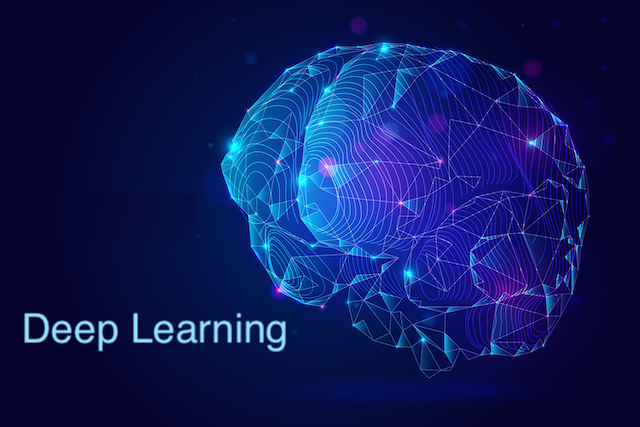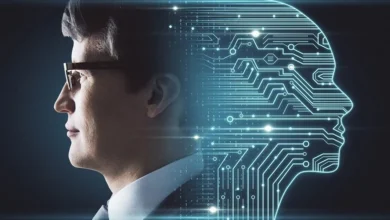Deep Learning – Advancing Artificial Intelligence

Deep Learning, a subset of Machine Learning, is revolutionizing the AI landscape with its ability to mimic human cognition. Utilizing complex neural networks, deep learning enables computers to learn from massive datasets, recognize patterns, and make intelligent decisions without human intervention.
What Is Deep Learning?
Deep Learning is a form of AI that uses multi-layered artificial neural networks to analyze and interpret data. Unlike traditional algorithms, deep learning models self-improve by identifying intricate patterns in vast datasets. The more data these models process, the better they become at performing tasks such as speech recognition, image classification, and natural language processing.
The key advantage of deep learning is its ability to handle unstructured data, making it highly effective in areas like medical diagnosis, financial forecasting, and autonomous systems.
How Deep Learning Works
Deep Learning operates through artificial neural networks (ANNs) inspired by the human brain. These networks consist of multiple layers of neurons, categorized into:
- Input Layer: Receives raw data inputs.
- Hidden Layers: Perform feature extraction and data transformation.
- Output Layer: Produces predictions based on learned patterns.
Through a process called backpropagation, deep learning models adjust their parameters to minimize errors, improving their accuracy over time.
Types of Deep Learning Networks
1. Convolutional Neural Networks (CNNs)
Used in image and video analysis, CNNs are the backbone of facial recognition, medical imaging, and autonomous vehicles.
2. Recurrent Neural Networks (RNNs)
Ideal for sequential data, RNNs power applications like speech recognition, language translation, and predictive text input.
3. Generative Adversarial Networks (GANs)
GANs generate realistic data, playing a key role in deepfake technology, AI-generated art, and video game design.
4. Transformers
Used in natural language processing (NLP), transformers like GPT and BERT enable advanced AI chatbots and automated content generation.

Applications of Deep Learning
1. Healthcare
- Medical image analysis (MRI and CT scans)
- Drug discovery using AI-driven simulations
- Personalized treatment plans
2. Autonomous Vehicles
- Self-driving cars rely on deep learning for obstacle detection and path planning.
- Traffic prediction and optimization for smart cities.
3. Finance & Banking
- Fraud detection using pattern recognition.
- Automated stock trading with AI-driven strategies.
- Credit risk analysis for loan approvals.
4. Robotics & Automation
- AI-powered robots for industrial automation.
- Smart assistants like Siri, Alexa, and Google Assistant.
5. Cybersecurity
- Threat detection and prevention using deep learning.
- Biometric authentication for enhanced security.
Challenges in Deep Learning
Despite its advantages, deep learning faces several challenges:
- Data Dependency: Requires vast amounts of labeled data for effective learning.
- Computational Power: Training deep models demands high-end GPUs and TPUs.
- Interpretability Issues: Deep learning models act as “black boxes,” making decision transparency difficult.
- Bias in AI: Models can reflect societal biases if trained on skewed data.
Future of Deep Learning
Deep Learning is evolving rapidly, with several emerging trends:
- Quantum AI: Using quantum computing to enhance deep learning capabilities.
- Edge AI: Running AI models on low-power devices like smartphones.
- Explainable AI: Developing models with greater transparency and interpretability.
- Self-Supervised Learning: Reducing the dependency on labeled data.
Also Rad: Machine Learning – Transforming the Future of AI
.png?width=850&auto=webp&quality=95&format=jpg&disable=upscale)
Conclusion
Deep Learning is at the forefront of AI advancements, driving innovations across multiple industries. Its ability to process vast data, recognize patterns, and make intelligent decisions makes it indispensable for the future of artificial intelligence. As research continues, deep learning will shape the next generation of AI-driven solutions, transforming how humans interact with technology.





3 Comments